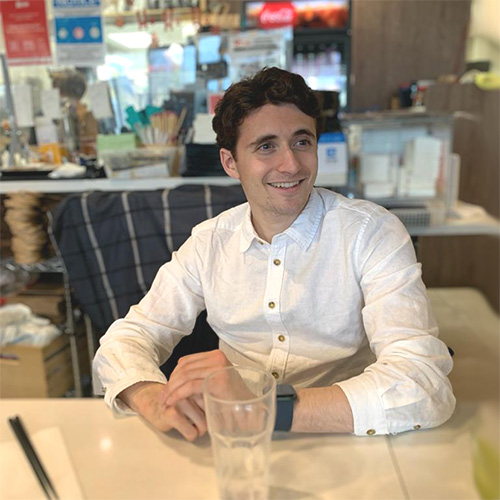
Nitai's Story
Nitai shares how treating himself like a close friend gave him a useful skill in his recovery from a stroke, social anxiety and depression.

Nitai shares how treating himself like a close friend gave him a useful skill in his recovery from a stroke, social anxiety and depression.
"The most important thing about this journey you’re going through is building a better relationship with yourself."
About Nitai:
 I’m a 25-year-old Israeli-Canadian that just graduated university and am currently travelling around Australia. Halfway through university, I started a mental health blog (The Silent Warrior), but currently I’m working on a project to build a community of like-minded people that are working towards similar health goals. If you want to be part of the community, you can learn more about it here: Circles.
I’m a 25-year-old Israeli-Canadian that just graduated university and am currently travelling around Australia. Halfway through university, I started a mental health blog (The Silent Warrior), but currently I’m working on a project to build a community of like-minded people that are working towards similar health goals. If you want to be part of the community, you can learn more about it here: Circles.
When I was in my first year of university, I had a brain hemorrhage and had to drop out of school. The hemorrhagic stroke affected my speech and when I returned to classes, I developed social anxiety because of it. Eventually, with the social anxiety plus all the other stresses of coming back to university, living with roommates, and living away from home, I spiraled into a depression.
The turning point was when it got so bad that I scared myself, and realized I really needed help before things got worse. That’s when I first reached out for professional help and started to slowly make changes. I started to meditate, journal, open up to friends, and eventually share my story through blog posts, various workshops, and events.
Two things helped me the most:
I want you to imagine that you have a really good friend that is struggling right now. Think about what you’d say to them. You’d probably say something along the lines of:
The most important thing about this journey you’re going through is building a better relationship with yourself. If you work on talking to yourself (eg. writing it out, mental reminders, or audio recordings), the same way you’d talk to your really good friend, then you’ll have an incredible internal support system with you for the rest of your life, 24/7, and it makes the journey to recovery much easier.
– Nitai Weinberg, The Silent Warrior, Melbourne, Australia